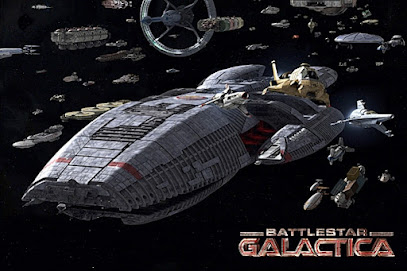After several years in development hell, NBC and Peacock have abandoned their plans to reboot the Battlestar Galactica reboot.
Back in September 2019, NBC tapped Sam Esmail, the creative force behind Mr. Robot, to develop a fresh take on the Battlestar Galactica franchise for their Peacock streaming service. The franchise had been created by Glen A. Larson and aired a single, huge-budgeted season on ABC in 1978, opening to enormous ratings but shedding them by season's end to be cancelled. A spin-off show, Galactica 1980, aired a single, critically-derided half-season in 1980 before being likewise cancelled.
Ronald D. Moore and David Eick resurrected the show with a grittier reboot in 2003, informed by the War on Terror and the Iraq War. The show ran for four seasons and two spin-off TV movies, concluding in 2010. A further straight-to-DVD movie followed in 2013, and a spin-off show, Caprica, aired a single season in 2010-11. This reboot, produced by NBC for the Sci-Fi Channel (later SyFy), was vastly more acclaimed, winning a Peabody and a Hugo Award.
Despite Esmail's high profile, the project struggled to get off the ground, possibly because Esmail only wanted to write and produce, leaving day-to-day showrunning duties to another producer. Michael Lesslie initially took on the project, only to later depart. Derek Simonds came on board in January 2024 in what appears now to have been a last-ditch effort to save the project.
Confusingly, Lesslie and Esmail made competing statements, the former stating the new show would be a fresh reboot of the premise and Esmail saying the new show would exist within the 2003 show's continuity. In January 2022, Universal announced that the new show would exist alongside a fresh feature film take on the franchise, to be written by X-Men screenwriter Simon Kinberg.
Now NBC have confirmed they are terminating their involvement in the project. No reason was given, but it was likely the long gestation time and expense (albeit minor so far) spent on going nowhere, Esmail not having the same profile and clout that he did back in 2019 when the project was getting off the ground, and the considerably more hostile streaming climate, with Peacock not performing as well as it could have done.
Universal are now shopping the project to other potentially interested parties














